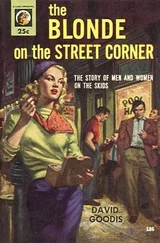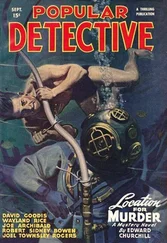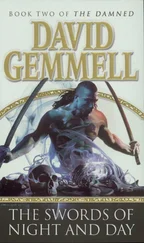* * *
Talisman awoke just before the dawn. Zhusai still slept as silently he rose and left the room. In the courtyard below the blind Nadir priest was drawing water from the well. In the half light of the pre-dawn the man looked younger, his face pale and serene. 'I trust you slept well, Talisman?' he enquired as the Nadir approached.
'Well enough.'
'And were the dreams the same?'
'My dreams are my concern, old man, and should you wish to live to complete your history, you would be advised to remember my words.'
The priest laid down the bucket and sat on the lip of the well, his pale opal eyes glinting in the last of the moonlight. 'Dreams are never secret, Talisman, no matter how hard we try to protect them. They are like regrets, always seeking the light, always shared. And they have meaning far beyond our understanding. You will see. Here in this place the circle will be complete.'
The priest carried the bucket to a nearby table and, with a copper ladle, slowly began to fill clay water pots that hung on slender ropes from the beams of the porch. Talisman walked to the table and sat. 'What are these histories you write?' he asked.
'They mostly involve the Chiatze and the Nadir. But I have become fascinated by the life of Oshikai. Do you know the origin of the name Nadir ?'
Talisman shrugged. 'In the southern tongue it means the point of greatest hopelessness.'
'In Chiatze it means the cross-roads of death,' said the priest. 'When Oshikai first led his people out of Chiatze lands a great army followed them, seeking to exterminate what they perceived as his rebel force. He met them on the plain of Chu-chien, and destroyed them. But two more armies were closing in upon him, and he was forced to lead his people across the Ice Mountains. Hundreds died, many more lost fingers and toes, arms and legs, to the terrible cold. As they cleared the frozen passes they emerged on to the terrible desert of salt beyond. The despair was almost total. Oshikai called a meeting of his Council. He told them that they were a people born in hardship and danger, and that they had now reached their nadir. From that moment he changed their name. Then he addressed the multitude, and told them that Shul-sen would lead them to water, and that a land full of promise would await them beyond the salt desert. He spoke of a dream, where the Nadir grew and prospered from shimmering sea to snow-topped peaks. That is when he gave them the verse all Nadir children learn as they suck their mothers' milk:
'Nadir we,
youth born,
axe wielders,
blood letters,
victors still.'
'What happened to Shul-sen?' asked Talisman. The priest smiled as, laying down his bucket once more, he sat at the table.
'There are so many tales, most embroidered upon, some mere fancy, others crafted with such mystical symbolism that they become meaningless. The truth, I fear, is more mundane. It is my belief that she was captured by Oshikai's enemies and slain.'
'If that were so, then he would have found her.'
'Who would have found her?'
'Oshikai. His spirit has searched for her for hundreds of years, but he has never found her. How could that be?'
'I do not know,' admitted the priest, 'but I will think on it. How is it you know these things?'
'Accept merely that I know,' answered Talisman.
'We Nadir are a secretive people, and yet also curious,' said the priest, with a smile. 'I will return to my studies and consider the question you pose me.'
'You claim to walk the many paths of the future,' said Talisman. 'Why can you not walk the single path of the past and see for yourself?'
'A good question, young man. The answer is simple. A true historian must remain objective. Anyone who witnesses a great event immediately forms a subjective view on it, for it has affected him. Yes, I could go back and observe. Yet I will not.'
'Your logic is flawed, priest. If the historian cannot observe events, he must then rely on the witness of others who, by your own words, can offer only a subjective view.'
The priest laughed aloud and clapped his hands together. 'Ah, my boy! If only we had more time to talk. We could debate the hidden circle of deceit in the search for altruism, or the lack of evidence for the non-existence of a supreme being.' His smile faded. 'But we do not have the time.'
The priest returned the bucket to the well and walked away. Talisman leaned back and watched the majesty of the dawn sun rising above the eastern peaks.
* * *
Quing-chin emerged from his tent and into the sunlight. A tall man, with deep-set eyes and a solemn face, he stood enjoying the warmth of the sun on his face. He had slept without dreams, and had woken feeling refreshed and ready for the sweet taste of revenge, his anger of yesterday replaced by a cold, resolute sense of purpose. His men were seated in a circle nearby. Quing-chin lifted his powerful arms above his head and slowly stretched the muscles of his upper back. His friend Shi-da rose from the circle and brought him his sword. 'It is sharp now, comrade,' said the smaller man, 'and ready to slice the flesh of the enemy.' The other six men in the circle rose. None were as tall as Quing-chin.
The sword-brother of Shanqui, the warrior slain by the Sky Rider champion, moved before Quing-chin. 'The soul of Shanqui waits for vengeance,' he said formally.
'I shall send him a servant to tend his needs,' quoted Quing-chin.
A young warrior approached the men, leading a dappled pony. Quing-chin took the reins from him and swung into the saddle. Shi-da handed him his long lance decorated with the dark, double twist of horse-hair that denoted a blooded warrior of the Fleet Ponies, and a black helm of lacquered wood rimmed with fur. Pushing back his shoulder-length dark hair, Quing-chin donned the helm. Then touching heels to the pony's flanks he rode from the camp, and out past the white walls of Oshikai's resting-place.
Men were already moving around the camp of the Sky Riders, setting their cook-fires, as Quing-chin rode in. He ignored them all and headed his pony towards the furthest of the eighteen tents. Outside the entrance a lance had been plunged into the ground and set atop the weapon was the head of Shanqui. Blood had dripped to the ground below it, and the flesh on the dead face was ashen grey.
'Come forth,' called Quing-chin. The tent flap was pulled open and a squat warrior stepped into view. Ignoring Quing-chin, he opened his breeches and emptied his bladder on the ground. Then he looked up at the severed head.
'Here to admire my tree?' he asked. 'See, it is blooming already.' Most of the Sky Riders had gathered around the two men now, and they began to laugh. Quing-chin waited until the sound had died down. When he spoke his voice was cold and harsh.
'It is perfect,' said Quing-chin. 'Only a Sky Rider tree would have rotting fruit upon it.'
'Ha! This tree will have fresh fruit today. So sad you will not be able to admire it.'
'Ah, but I shall. I will tend it myself. And now the time for talk is past. I shall await you in the open, where the air is not filled with the stench of your camp.'
Tugging on the reins, Quing-chin galloped his pony some two hundred paces to the north. The twenty-eight warriors of the Fleet Ponies had already gathered there, sitting their mounts in silence. Within moments the thirty Sky Riders rode out, forming a line opposite Quing-chin and his men.
The squat Sky Rider, long lance in hand, heeled his pony forward, then swung to the right and galloped some fifty yards before savagely hauling on the reins. Quing-chin rode his pony between the lines of the two tribes, then turned and raised his lance. The squat warrior levelled his lance and kicked his mount into a run, charging at Quing-chin. The Fleet Ponies leader remained motionless as his opponent closed the gap between them. Closer and closer came the Sky Rider, until at the last possible moment Quing-chin jerked the reins and barked out a command. His pony bunched its muscles and sprang to the right. In the same heartbeat Quing-chin lifted his lance over his pony's head and rammed it to the left. The move was intended to spear the opposing rider through side and belly, but the Sky Rider had dragged back on his reins more swiftly than Quing-chin had anticipated, and the lance slammed into the neck of his opponent's pony which stumbled and fell, dragging Quing-chin's lance from his hand. The Sky Rider was thrown clear and spun in the air to land heavily on his back. Quing-chin leapt from his mount and ran forward, drawing his sword. The Sky Rider rolled to his feet, still groggy from the fall, but even so he drew his own blade and blocked the first cut. Quing-chin closed in, his left foot lashing out into the Sky Rider's unprotected knee. The Sky Rider jumped back and half fell. Quing-chin followed in, sending his sword in a vicious cut that ripped open the other man's jerkin and sliced up across his left cheek, tearing the flesh and sending a spray of blood into the air. The Sky Rider screamed in pain and attacked. Quing-chin blocked a belly thrust, spun on his heel and hammered his left elbow into the Sky Rider's blood-covered face. The man was hurled from his feet, but he scrambled up as Quing-chin closed in; he was fast, and sent a lightning thrust at Quing-chin's face. The taller man swayed aside, the blade slicing his ear lobe. His own sword flashed out in a neck cut that was too low, the blade cleaving into the Sky Rider's left shoulder. The squat warrior stumbled forward, but swung just in time to block a second blow aimed at his neck. The two warriors circled one another more warily now, respect growing between them. Quing-chin had been surprised by the man's speed, and the Sky Rider, blood pouring from the wounds to his shoulder and face, knew he was in desperate trouble.
Читать дальше












